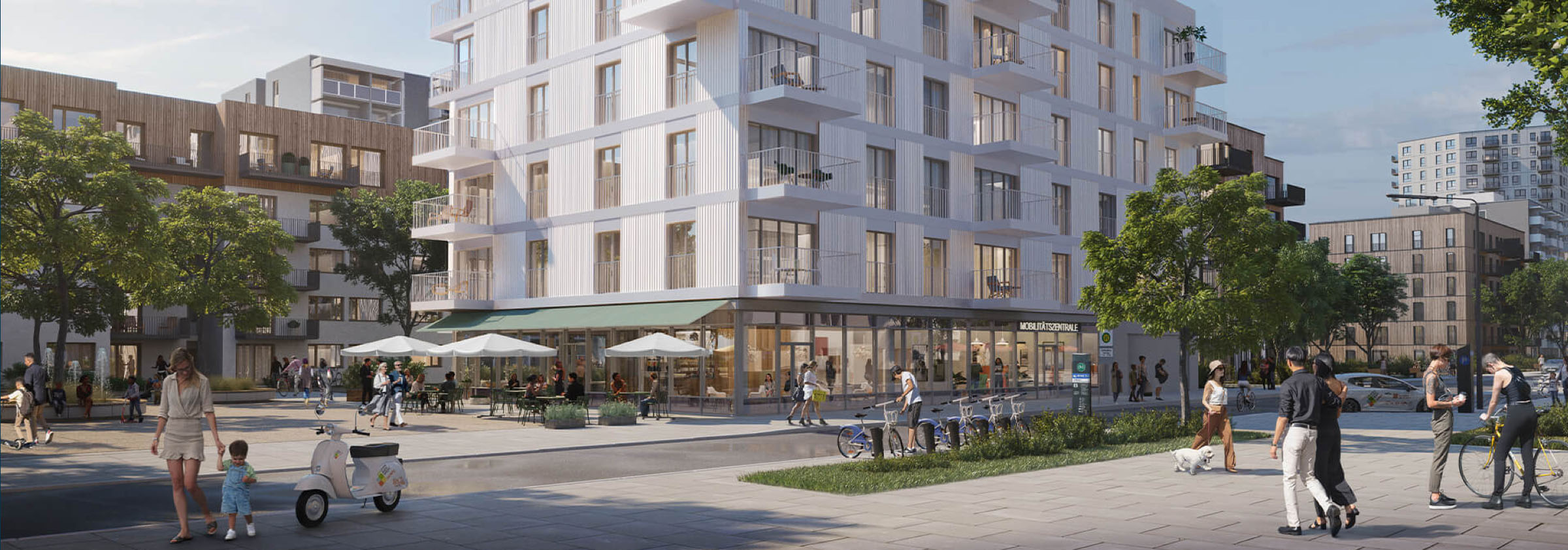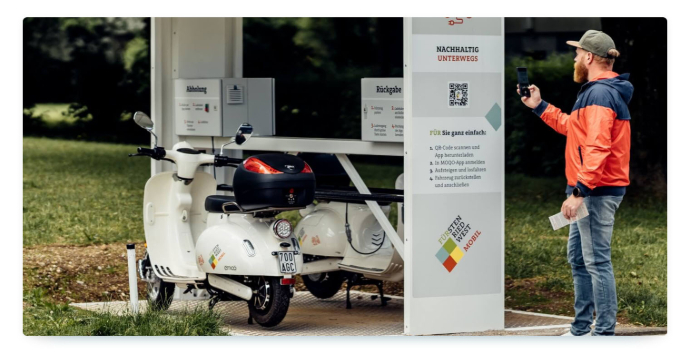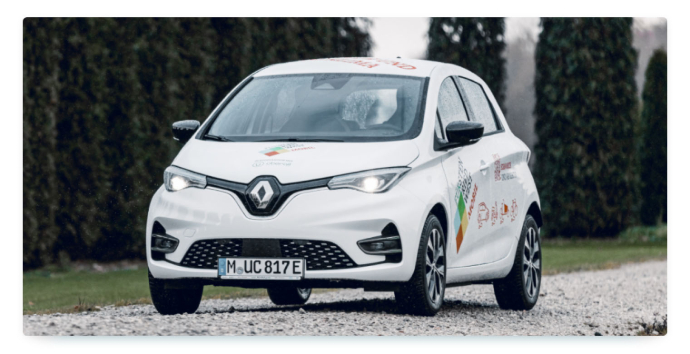
7 min read • April 25, 2025
Fewer parking spaces, better quality of life - and a flexible sharing service right in the middle: In the Quartier FÜRstenried West in Munich, überall GmbH is demonstrating what modern neighborhood mobility can look like. The great interest and steadily growing usage figures prove the potential of tailor-made and well thought-out mobility solutions for residential districts - for providers and residents alike.
Best Practice

überall GmbH proves time and again that there is a solution for every (mobility) problem. Be it to establish sharing services in rural regions, to cover use cases such as residential areas or business mobility or to find technical workarounds. Managing Director and founder Felix Weiss also advises other shared mobility operators on setting up their services and finding creative solutions.
Like many major German cities, the city of Munich allows a reduction in the number of parking spaces in new residential areas if a corresponding alternative mobility concept is presented.
This is precisely where the project in the Quartier FÜRstenried West came in: A professionally developed mobility concept for the new development area provided for the offer of carsharing and micromobility.
On this basis, überall GmbH took over the implementation planning: Which vehicle types make sense? Where should locations be set up? What does the appropriate infrastructure look like - and what can a viable operator concept look like? Within six months, a concept was turned into a feasible plan, followed by implementation.
The Quartier FÜRstenried West in the southwest of the Munich metropolis was created back in the 1970s. The vision: affordable and socially acceptable living space for all generations to make living in Munich future-proof. A good infrastructure, many green spaces, play areas and a lively center contribute to a high quality of living in the district. The mobility concept implemented by überall GmbH also plays a key role here.
More info about Quartier FÜRstenried West →
Once the planning was complete, überall GmbH took care of the entire implementation of the project - including charging infrastructure, vehicle procurement, telematics installation, vehicle wrapping in a customized design and the commissioning of the parking spaces.
The service was launched in November 2022 - accompanied by an information event for residents.
7 steps to set up your sharing service →

The local offering focuses on variety and suitability for everyday use:
The combination of small electric cars and long-distance options, cargo bikes and seat scooters in particular offers a needs-based mobility solution for different situations - and makes owning a vehicle no longer necessary for many people.
After just two years of operation, it is clear that the service is popular. In the first two years after its launch, around 10% of residents registered, with new users joining every month.
Cargo bikes and e-scooters are particularly popular in spring and summer, while cars are used all year round - especially for specific individual needs. Typical users are between 25 and 45 years old, ranging from 18 to 81. Many of them do not own a car at all and rely on public transport and bicycles for everyday use.
Originally designed for the neighborhood, the service is now also used by residents of neighboring areas - proof of the attractiveness and flexibility of the system.
Does shared mobility also work in the countryside? →

What makes the sharing offer in the Quartier FÜRstenried West special is that it doesn't just replace parking spaces - it changes the neighborhood.
The advantages for the neighborhood in a nutshell:
Neighborhood mobility becomes a lever for sustainable urban development and at the same time offers real added value for residents.
How shared mobility helps in terms of climate change →

As with all its mobility projects, überall GmbH relies on the MOQO platform - and benefits from a wide range of options and features:
Reach more customer segments with a subscription model →

The example of the Quartier FÜRstenried West shows the potential of modern solutions for neighborhood mobility. An exciting, growing market is opening up here for sharing providers - with a high level of willingness to use it, predictable framework conditions and a sustainable impact in urban areas.

At the MOQO Summit 2025, Managing Director and founder Felix Weiss will report on the development of überall GmbH, successful and less successful projects and goals for the future. Take this opportunity to network and exchange experiences. Felix also advises other sharing providers on setting up their services.